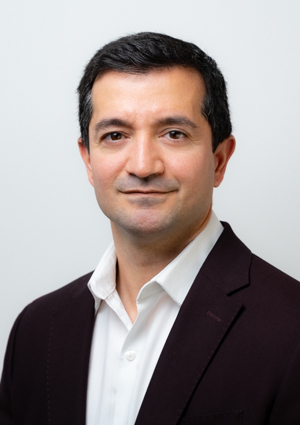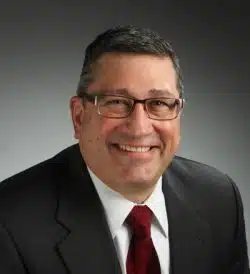Course: Seepage and Slope Stability Analysis Using LEM and FEM
Course Details
- Date: November 12-13, 2024
- Venue: AC HOTEL NEW ORLEANS FRENCH QUARTER | 221 Carondelet Street, New Orleans, LA 70130
- Schedule: 8:30 am to 5 pm
- Instructors: This course will be in English, instructed by Dr. Alireza Azami, Director of Business and Research, Rocscience and Dr. Conrad Felice, Managing Principal at C. W. Felice, LLC
- Programs Covered: Slide2 and RS2
- Registration Fees:
- Early Bird Price - $1095 USD* (until October 15, 2024)
- Regular Price - $1195 USD*
*If you are attending as a group of 2 or more, please write to USCAN@rocscience.com for more details on the group discount.
What’s included:
- Temporary software licenses
- PDF of course materials
- PDH Certificate
- Lunch & Snacks
Please note:
- Registrants will be responsible for their own accommodation
- Participants must bring their own laptops (and mice)
- Recommended minimum specs:
- 32 GB RAM is the recommended minimum
- 64 GB RAM for 100,000+ triangles
- 100 GB SSD is the recommended minimum
- 500 GB SSD preferred
- Discrete Nvidia brand graphics cards preferred for optimal experience
- Windows 10 64-bit recommended minimum
For any additional queries, please reach out to USCAN@rocscience.com
--
Presentation Topics
Introduction to Stability Analysis
- Failure modes of levee slopes
- Methods of analysis – Limit Equilibrium Methods and Finite Element Method
Overview of Limit-Equilibrium Slope Stability Analysis (Slide2 - Day 1)
- 2D limit-equilibrium method of slices
- Choice of methods
Slope Stability Analysis in Slide2
- Slide2 - general overview
- Model creation, and interpretation of results (with hands-on practice)
- Material shear strength criteria
- Search methods for locating minimum factor of safety and failure surface optimization techniques
Seepage and Groundwater Analyses (with hands on examples)
- Pore water pressures and slope stability
- Phreatic surface, grid, and pore water pressure ratio methods
- Steady-state seepage analysis
- Transient seepage analysis
17th Street Canal Breach-Hurricane Katrina (Case Study with Hands-on Practice)
- Failure mode of levee
- Modelling of different scenarios with LEM
Slope stability analysis using the shear strength reduction method (RS2 - Day 2)
- An introduction to FEM and RS2
- Geometry and model creation
- Project settings and options
- Meshing
- Loading and boundary conditions
- Computing and interpreting results
- Options for interpreting and managing results
- Reporting options
Application of FEM to slope stability analysis
- Shear Strength Reduction approach
- Verification and comparison of LEM and FEM-SSR results
- Advantages and disadvantages of FEM and how FEM can complement LEM
- Integration with Slide2
17th Street Canal Breach-Hurricane Katrina (a Case Study with hands on examples)
- Modelling of different scenarios with FEM
Relief wells and stability of levees (with hands-on practice)
- Relief wells and their effect on safety and longevity of levees
- Modelling relief wells and wick drains
Presenters

Alireza Azami, Ph.D.
Dr. Alireza Azami is a Geomechanics Specialist and Director of Business and Research at Rocscience. He holds a Ph.D. from McMaster University in civil engineering (geomechanics), specializing in constitutive modelling of geomaterials. Since joining Rocscience in 2010, Dr Azami has conducted research and development on well-known software solutions, including Slide2, Slide3, RS2, RS3, and RSData. His work encompasses a wide range of areas, including seepage analysis, coupled hydromechanical analysis, constitutive modelling for rocks and soils, and the implementation of the shear strength reduction method for various material models in the Rocscience FEM tools. Dr. Azami is also an instructor for workshops, webinars, and standard and customized course packages. He is directly involved in joint research programs with universities, and is an Adjunct Professor at the Department of Civil & Mineral Engineering at the University of Toronto.

Conrad W. Felice, Ph.D., P.E., P.Eng., D.GE., F. ASCE
Dr Felice is the Washington State Department of Transportation owner's representative and Geotechnical Design Manager for the over $2.5 billion I-405 Corridor Program. He is also the Managing Principal at C. W. Felice, LLC, and an Adjunct Professor in the Department of Civil & Coastal Engineering at the University of Florida. Conrad is a professional engineer registered in 20 states and four provinces in Canada. He has led the geostructural design and construction of deep foundations for signature long-span bridge projects, including the Rajiv Gandhi Sea Link in Mumbai. His projects have also included hard rock and soft ground tunnels, marine structures, pipelines, and hydropower facilities. Conrad is a current trustee for the Deep Foundation Institute and the immediate past chair of the tunnel and underground structures committee of the Transportation Research Board. In 2020, he was appointed to the California Seismic Advisory Board and elected to Moles membership. Conrad is a Fellow of the American Society of Civil Engineers, a board-certified geotechnical engineer within the ASCE Geo-Institute, and a past member of the Committee on Geological and Geotechnical Engineering for the National Research Council, U.S. National Academy of Sciences. Conrad is a U.S. Air Force Veteran serving the United States for 27 years as an active and reserve duty officer and retired with the rank of Lieutenant Colonel. He earned a B.S. and Ph.D. in civil engineering from Ohio University and the University of Utah, respectively, and an M.S. in facilities management from the Air Force Institute of Technology.
Nov 12, 2024 - Nov 13, 2024
New Orleans, USA
The course will be conducted in English
- Early Bird: USD $1095
(until Oct 15, 2024) - Regular: USD $1195